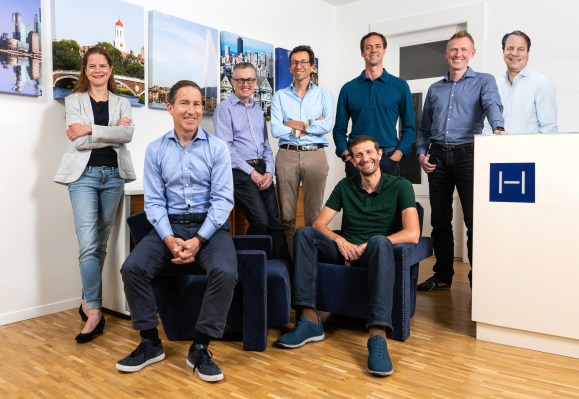Highland Europe, the European “growth-stage” technology investor, has closed a new €463 million fund, the firm’s third fund in just six years.
Targeting “globally ambitious” European software and internet-enabled businesses, the VC typically writes initial cheques of between €10 million and €30 million. It says that startups seeking investment need to demonstrate that they have reached sufficient scale “to confirm the validity of their business model.”
That may seem quite conservative by some venture standards. However, it’s an investment criteria that Highland Europe says is working, with all of its main LPs bullish enough to return for a third bite of the apple. “Significantly oversubscribed, the fund was raised in just 12 weeks and takes the firm’s assets under management to €1.1 billion,” says the VC.
On that note, Highland Europe counts 29 active companies in its portfolio, with combined revenues of €1.1 billion in 2017. In terms of exits, over the last 18 months, the firm has most recently sold stakes in luxury fashion retailer MatchesFashion.com, game developer SocialPoint and waste industry software provider AMCS Group.
Meanwhile, Berlin-based GetYourGuide, another Highland Europe-backed startup, raised $75 million in a follow-on round last year.
“There are different kinds of players in our industry and there is room for everybody,” Highland Europe partner and co-founder Fergal Mullen told me on a call last week. “Let’s be clear, we are not the early-stage people who make a bet on a concept, that’s not what we do. We need proof points, and if the proof points are there we have got 10 to 50 or 60 million available capital for each company.”
Asked how the European startup ecosystem has changed in the last few years and how it currently compares to Silicon Valley, Mullen says that although the U.S. still has a lot more capital to deploy — and is probably overcapitalized — European founders are more ambitious than ever and European companies continue to punch way above their funding weight.
“If you look at the mentality and ambition of the of young entrepreneurs in Europe nowadays, as far as I’m concerned there’s no difference between Europe and the U.S., the ambition level is there now,” he says. “The big thinking is there. The positive frame of mind. And the willingness to push the boat out, maybe fail, make mistakes, but pick up and move on. Therefore, the young entrepreneurs that we meet are looking to match up with venture capital and growth equity players who are prepared to help them achieve their full ambition and go for it. That’s a huge change and that’s a lot to do with the maturing of the market here in Europe.”
Mullen is impressed by the number of valuable companies being created in Europe and says that the quality of these companies is “exceptional.” “When I say quality I mean our companies are more capital efficient. They have to be because there’s not as much capital available so they use less capital to get to the same value as a U.S. unicorn. And they have typically twice the revenue of a U.S. unicorn on average. So they have to get to a bigger scale for a similar value.”
Longer-term, he references the pipeline of talent Europe has as another factor in its favor, pointing me to the most recent Mary Meeker “Internet Trends” report that suggests the EU is churning out many more STEM graduates than the U.S., even if China is accelerating fastest.
“This is often forgotten, [but] Europe right now is graduating hundreds of thousands more STEM graduates per year than the United States. At the PhD level, we are graduating 35,000 to 40,000 more per year. So that data point alone to me is a very compelling reason to be long on European tech for the next few decades,” says Mullen.
One thing Highland Europe won’t do is invest in a particular sector just because it is in vogue, says Mullen, after I note the VC firm has only invested in a couple of fintech companies and none you are likely to have heard of. “We don’t invest in the hype phase of any sector,” he says. “We look at fintech all the time, but our criteria are very, very strict. If you don’t have a certain amount of revenue and you’re not demonstrating real capital efficiency, we’re not going to jump in just because fintech is hot.”
Likewise, Mullen singles out AI, arguing that a lot of the concepts being pitched as AI-based aren’t true AI. “At best they might be ML, but they’re not AI. If you define it as an algorithmic-based approach with the ability of the algorithm to evolve itself and it learns and ingests more data… there is very little that is genuinely AI. That sector is very much overhyped, but it doesn’t mean we’re not looking and looking hard. At the end of the day we don’t care what it is as long as it is really working and working well.”
Challenged to name sectors that are under-hyped, the Highland Capital partner says mundane industries offer a great opportunity, citing AMCS, which operates in the waste management industry. “That’s a trillion-plus industry that is completely under invested from a tech stack standpoint.”
Adds Mullen: “At the end of the day, what’s our objective? Our objective is to deliver fantastic results to our investors and along the way we want to have a great time with wonderful entrepreneurs that we enjoy working with. If you have all of that you don’t have a job, you’ve got a vocation. It’s just an extraordinary business to be in.”
